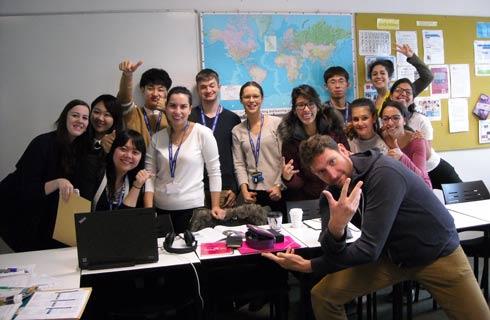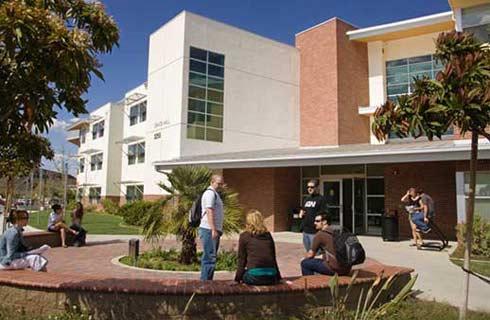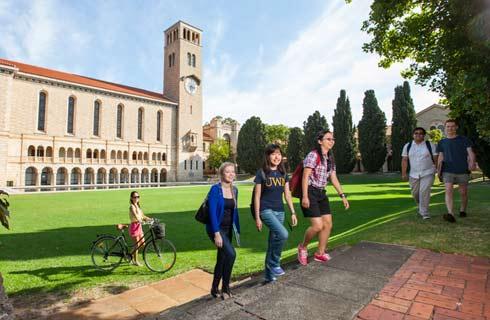- IDP China>
- 课程库>
- 商科与管理>
- 数学与统计学>
- 代数与数论>
- Master of Mathematics in Combinatorics and Optimization - Continuous Optimization
组合与优化数学硕士-连续优化
Master of Mathematics in Combinatorics and Optimization - Continuous Optimization

学历文凭
Masters Degree

专业院系
Department of Combinatorics and Optimization

开学时间

课程时长

课程学费

国际学生入学条件
IDP—雅思考试联合主办方

雅思考试总分
7.0
- 雅思总分:7
- 托福网考总分:90
- 托福笔试总分:160
- 其他语言考试:PTE (Academic) - 63 (writing 65, speaking 65)
CRICOS代码:
申请截止日期: 请与IDP联系 以获取详细信息。
课程简介
Continuous optimization is the core mathematical science for real-world problems ranging from design of biomolecules to management of investment portfolios. Continuous optimization means finding the minimum or maximum value of a function of one or many real variables, subject to constraints. The constraints usually take the form of equations or inequalities. Continuous optimization has been the subject of study by mathematicians since Newton, Lagrange and Bernoulli. One major focus of the continuous optimization group at Waterloo is convex optimization, that is, continuous optimization in the case that the objective function and feasible set are both convex. Convex optimization problems have widespread applications in practice and also have special properties that make them amenable to sophisticated analysis and powerful algorithms. Members of the group have carried out fundamental work in convex optimization including new and more efficient algorithms for convex optimization and understanding of the most fundamental properties of convex sets such as properties of the set of positive semidefinite matrices. A second focus of the group is applications of convex optimization to nonconvex problems. Members of the group have shown how to apply convex optimization to NP-hard combinatorial problems yielding results with surprisingly strong guarantees. The group has also applied convex optimization to the nonconvex problem of sensors that must determine their position in space based on measured distances from other nearby sensors. Finally, the group has developed a theory of general purpose methods to use convex optimization for solving nonconvex optimization problems including one of the hardest in the class, namely, unstructured integer linear programming. A final focus of the group is on robust solution of very large scale optimization problems. Such problems may require parallel computing, automatic differentiation, and special handling of sparse matrices and vectors. The group recently was awarded a large high-performance cluster by the Canada Foundation for Innovation and the province of Ontario to push the limits of problems that can be tackled with these techniques.
相关申请
 预科
预科 奖学金
奖学金 实习机会
实习机会 在校学习
在校学习 跨境学习
跨境学习 校园授课-线上开始
校园授课-线上开始 在线/远程学习
在线/远程学习
开学时间&学费
学费信息仅供参考,请与IDP联系以获取详细信息
| 开学时间 | 时长 | 学费 | 地点 |
|---|
学校排名

世界排名201
数据源:
泰晤士高等教育世界大学排名
关于滑铁卢大学

滑铁卢大学是加拿大滑铁卢市的一家著名大学,是一所以研究为主的中等大小的公立大学,创建于1957年。以数学、计算机科学、工程学而闻名。该校位于安大略省的西南面的滑铁卢市,占地面积约为1000英亩。滑铁卢大学成立至今,仅数十年便跻身加拿大名校之列,是加拿大发展最快的学校。2011年到2013年,该校一直稳居麦克林杂志评选的加拿大综合性大学排名的第三位,是北美地区最优大学之一,其数学,计算机科学和工程学科教学水平居世界前列。特别是做为北美地区第一个经认可建立数学系的大学,拥有世界上最大的数学系以及世界上最大的合作办学项目。学校共授予100多个本科学位专业,28种硕士及博士学位专业,学校的代表队曾多次获得ACM 国际大学生程序设计竞赛的冠军。
本校相关课程

系统设计工程哲学博士
学历文凭
Ph.D.
开学日期
课程费用总额


系统设计工程工程学硕士
学历文凭
Masters Degree
开学日期
课程费用总额


社会学文学硕士[仅课程]
学历文凭
Masters Degree
开学日期
课程费用总额


Doctor of Philosophy in Religious Studies
学历文凭
Ph.D.
开学日期
课程费用总额


运动机能学博士-工作与健康
学历文凭
Ph.D.
开学日期
课程费用总额


娱乐与休闲研究哲学博士
学历文凭
Ph.D.
开学日期
课程费用总额

其他相关课程

理学学士-数学和计算金融
 康考迪亚大学
康考迪亚大学学历文凭
Bachelor Degree
开学日期
课程费用总额


计算数学数学硕士
 滑铁卢大学
滑铁卢大学学历文凭
Masters Degree
开学日期
课程费用总额


理学学士/教育(数学)学士小学/初中
 湖首大学
湖首大学泰晤士高等教育世界大学排名:1080
学历文凭
Bachelor Degree
开学日期
课程费用总额


理学学士/数学教育学士
 阿卡迪亚大学
阿卡迪亚大学学历文凭
Bachelor Degree
开学日期
课程费用总额


数学哲学博士
 韦仕敦大学
韦仕敦大学学历文凭
Ph.D.
开学日期
课程费用总额


Master of Science in Mathematics
 爱达荷州立大学
爱达荷州立大学学历文凭
Masters Degree
开学日期
课程费用总额










